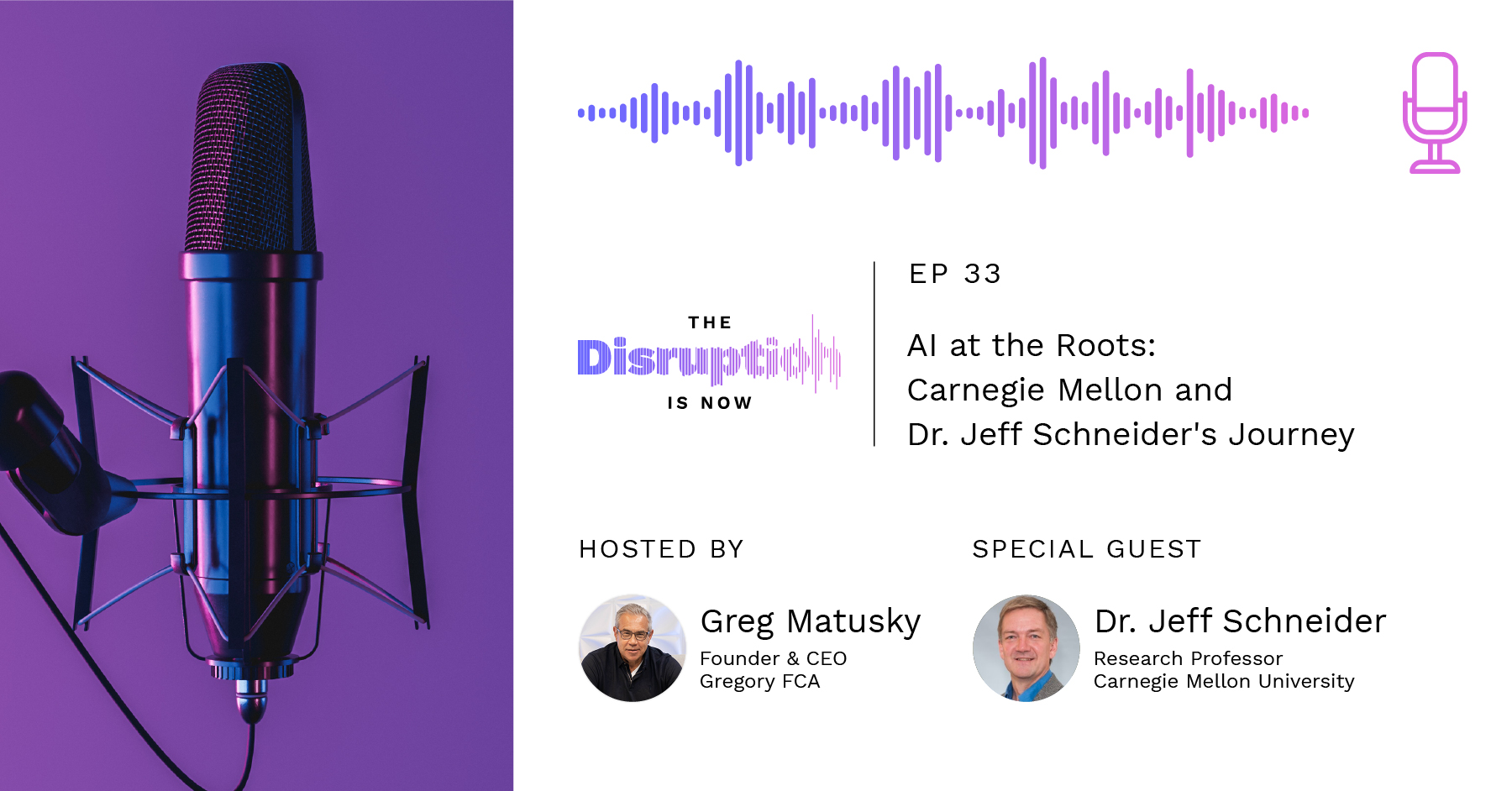When you think of the epicenters of artificial intelligence and robotics, places like Silicon Valley or Boston likely come to mind. Pittsburgh has also carved out a niche as a hub for AI innovation, specializing in autonomous vehicles.
Many in the AI talent pool come from Carnegie Mellon University, which is where we find this week’s guest on The Disruption Is Now. Dr. Jeff Schneider is a research professor at CMU’s Robotics Institute and distinguished expert in machine learning with 15 years of experience developing algorithms for industrial, science, and government applications. He joins host Greg Matusky to discuss the region’s pivotal role in projects like Uber’s autonomous driving program and Caterpillar’s self-driving mining trucks.
The discussion goes far beyond autonomous vehicles, though. Dr. Schneider shares details about how AI is being used to tackle global challenges like clean energy production through nuclear fusion — a potential game-changer for issues like climate change and food scarcity.
For communicators and marketers intrigued by AI’s impact, the conversation also offers a glimpse into the future of the workplace, where AI agents could become our virtual teammates, assisting with research, communication, and workflow tasks.
Listen in to hear an optimistic outlook on how this transformative technology can improve our lives and solve humanity’s greatest challenges.
Watch now:
Key takeaways
The potential and challenges of autonomous driving
The discussion explores the potential benefits of autonomous driving technology, such as improved safety by reducing human error and lower costs by eliminating the need for drivers. However, the conversation also touches on the challenges and delays in adopting fully autonomous driving due to the rigorous safety testing required to ensure the technology operates flawlessly in the physical world.
The impact of AI on the future of work
As AI’s reach expands into new sectors, the workplace will change. Dr. Schneider suggests that AI agents will become increasingly common, assisting with communication, research, and workflow tasks. While some jobs may be disrupted, the conversation emphasizes the need for workers to adapt and master AI technologies to remain relevant and competitive.
The promise of clean energy through nuclear fusion
Dr. Schneider’s work on using AI to advance nuclear fusion technology is discussed as a potential game-changer in providing limitless clean energy. Abundant clean energy could help address global challenges like climate change, food scarcity, and water shortages, which are often rooted in energy-related issues.
Key moments:
● How Pittsburgh became a hub for machine learning and robotics (1:40)
● Carnegie Mellon’s role in autonomous vehicles (3:10)
● Today’s landscape of autonomous vehicles (7:50)
● Why adoption has taken so long (11:10)
● AI’s effect on long-haul truck drivers (14:00)
● How AI has influenced robotics (20:06)
● The future of the workplace in the AI era (25:45)

